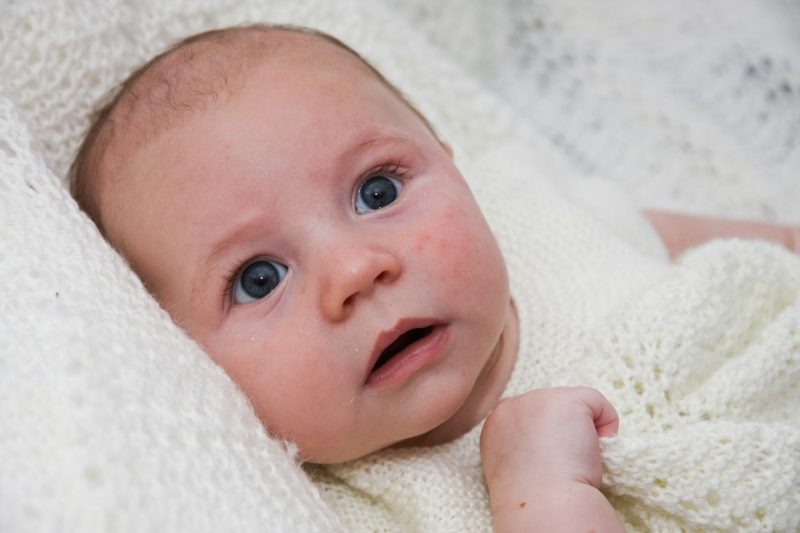Baby eczema is an annoying and irritating skin condition that affects about 15-20% of children. As so many babies suffer some form of this disorder in infancy, it’s usually treated as ‘non-threatening’. However, not dealing with it early on can result in eczema turning chronic and literally ruining your child’s life. Nobody wants this for their child, so the best thing you can do as a parent is use the most effective baby eczema treatments as soon as you notice the symptoms. The good news is, there’s a high chance changing your diet might be the only thing you’ll need to do in order to avert the disaster. In some situations, other forms of treatment may be necessary.

Baby Eczema and Diet: What’s the Connection?
Up to 20% of babies are born with dry and sensitive skin. This is a precursor to baby eczema. In the majority of cases, more severe forms of dermatitis may develop even if you are extremely careful when tending to the newborn’s skin.
The problem with eczema of any kind is that no one knows exactly why it occurs. There is some data to prove that it can run in families as well as be a reaction to allergens, like common chemicals (think washing detergents) or foods. However, the exact mechanism of this condition is unknown. This means we cannot prevent eczema with a 100% guarantee.
However, due to multiple studies on the connection between diet and this skin condition, we know that:
- Breastfeeding can help protect your baby from eczema.
- Breastfeeding mothers should avoid eating tree nuts, peanuts, fish, eggs, and cow’s milk to prevent their baby from developing dermatitis.
It’s currently believed that a baby’s gut health is directly responsible for triggering eczema flares. So, the best treatment is to keep your little one’s tummy healthy. As you are the one feeding them, it’s controlling the quality of food you yourself eat that makes all the difference.
How to Treat Baby Eczema and Sooth Your Child
If your little one does develop baby eczema, do not panic. Starting treatment as soon as you notice skin redness, flaking, and irritation will help stop the progression of the condition.
1. Take a soothing bath every night
Change your regular bath to a soothing bath with aromatherapy oils. Lavender and chamomile oils are the best because they help not only to reduce inflammation, causing your baby discomfort, but they also help relax them and soothe the child to sleep.
Bear in mind that a bath for a baby with eczema should be short and the water should be warm instead of hot. Never use rough washcloths or loofahs when washing your little one. Only the softest materials and towels are acceptable.
2. Moisturize little one’s skin all the time
Baby eczema often develops out of extreme skin dryness, so effective and frequent moisturizing is one of the best treatments. Use only fragrance and dye-free creams. Consider using gel-like products based on water instead of ‘heavy’ baby creams.
3. Keep your baby comfortably cool
Sweating will cause the already existing irritation to get worse and will cause a lot of discomfort to your child. Note that stress is one of the triggers for baby eczema, so you have to avoid it to your best ability.
Wearing clothes made of soft ‘breathing’ fabrics will help. As you can’t do it during the winter, change your baby more often to remove sweaty clothing. In the summer, use cooling compresses to keep your little one comfortable. Placing a cool washcloth on the areas affected by baby eczema for 3-5 minutes will help treatment, as well as soothe the child.
In severe cases of eczema, you and your baby might be prescribed medications, like antihistamines or antifungal drugs. It’s imperative to have your doctor monitor the condition and start extra treatment if the situation becomes severe. This is your best chance of preventing the eczema from turning chronic.
Leave a Reply